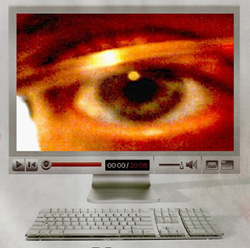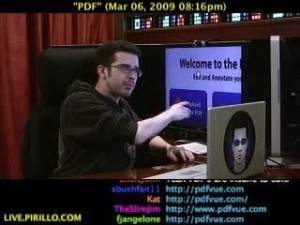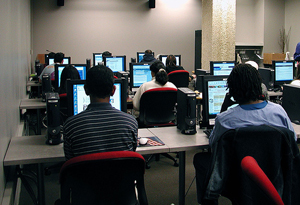 I’ve recently had a couple of really good weekends. I did a lot of things that I enjoyed, like play music and cook. Most importantly, I mostly stayed away from the Internet.
I’ve recently had a couple of really good weekends. I did a lot of things that I enjoyed, like play music and cook. Most importantly, I mostly stayed away from the Internet.
Like many of us, I rely on the Internet every day, and I don’t know how I’d survive without it. But it also makes me crazy. Some days I come away from hours of browsing feeling truly unhappy.
Here’s why I have a love-hate relationship with the Interweb:
1) There’s new content literally every time you blink, and most of it is free.
Pro: I’m constantly entertained or fascinated. I can watch most of my favorite shows online. I can get up-to-the minute announcements about cultural events in town, or safety alerts on hurricanes that are moving into my area.
Con: I feel guilty and ignorant every day for not keeping up with the constant flood of breaking news. I feel like Newman from Seinfeld, working in the post office: “The mail never stops. It just keeps coming and coming and coming. There’s never a letup. It’s relentless.” I typically have dozens of web pages open, nagging at me to check them out. A friend sends me a New York Times article, and by the time I get around to reading it, it’s old news. Next! It’s simply not possible to keep pace with everything newsworthy, but I still feel like a failure for not being able to.
The attention span in the developed world is now very short. In Homer’s Greece, people used to listen to stories so long that they took days to tell. Can you imagine that scenario today? Homer’s audience would be fidgeting, checking email on their Blackberries, and Twittering “Yaaaaawn. Longest. Story. Ever.” Neuroscientists say that the speed of online media is affecting kids’ brain development, keeping it in an infantile state that needs constant and changing stimulation.
 2) Extensive coverage of international news is easy to access.
2) Extensive coverage of international news is easy to access.
Pro: People can learn about cultures all over the world and appreciate diversity. They can become more informed about injustices far from their hometowns and can contribute to efforts to fix them. They also can hear inspirational stories from countries far and wide and take lessons from them about how to make social change. Watchdog groups and grassroots activists can get their message out even with zero funding.
Con: People are affected by not only their own troubles and joys and those of their communities, but also those of countless strangers. It takes a lot of energy to process all that information, and even more to care about it.
 3) Expert knowledge on nearly every topic is just a click away.
3) Expert knowledge on nearly every topic is just a click away.
Pro: The Internet has democratized education. Anyone can be a teacher, student, reporter, business person, or writer (of varying quality, of course). I’ve Googled new recipes and safe cosmetics, researched how long eggs stay good in the fridge, how to fix a toaster, and how to know when a wound needs stitches (this is very useful when you’re as klutzy as I am). Darren has taught me that there’s probably free software or a tutorial to solve just about any organizational or technological problem you have.
Con: Using the Internet can be like eating from the Tree of Knowledge. You may find out things that you would have been better off not ever knowing. You can clutter up your brain sifting through and retaining more knowledge than your ancestors could ever even access.
Getting used to instant gratification has made us more impatient and demanding (this article is from 10 years ago, and it’s gotten worse since), which I believe contributes to social problems like road rage.
 4) Facebook and other social networking sites allow you to keep up with many, many old friends and new ones.
4) Facebook and other social networking sites allow you to keep up with many, many old friends and new ones.
Pro: You can maintain light but meaningful contact with people you know all over the world, staying connected by instantly exchanging pictures and leaving comments for each other. You can locate friends that you’d thought you’d lost forever and be part of each other’s lives again.
Con: At some point, your social circle gets unwieldy. You may feel obligated to send happy birthday wishes to that girl you met at a party once, or keep up with your friend’s every thought on Twitter. It seems unnatural to collect people like our parents did stamps, instead of naturally losing touch with some. You may also spend so much time in your online kingdom that you neglect the face-to-face human contact that all of us need.
 5) People tend to be more self-reflective because they are writing frequent status updates.
5) People tend to be more self-reflective because they are writing frequent status updates.
Pro: We’re more aware of their thoughts, feelings, and actions day-to-day, and ideally more intentional about the way we live.
Con: We’re more self-absorbed and self-important. What? I’m not the center of the universe? But I have my own website.
The Internet has made life easier for humans in a lot of ways, but it also burdens us with challenges that previous generations didn’t have. Even more, it’s simply unnatural for us to sit in front of a computer screen for hours at a time. Just ask my own aching shoulders and glazed eyes.
 If you’re feeling unhappy or strangely numb, ask yourself if you need a digital detox. Break your addiction to Facebook by going for a walk in the fresh afternoon air; meet up with your friends for coffee instead of instant messaging them. Spend a Saturday in an independent bookstore. Organize a potluck. Paint. Remember that our grandparents lived without Internet, and many of them still do. You’ll not only survive your trial separation from your computer screen, but I’ll bet that you’ll feel refreshed and somehow more alive.
If you’re feeling unhappy or strangely numb, ask yourself if you need a digital detox. Break your addiction to Facebook by going for a walk in the fresh afternoon air; meet up with your friends for coffee instead of instant messaging them. Spend a Saturday in an independent bookstore. Organize a potluck. Paint. Remember that our grandparents lived without Internet, and many of them still do. You’ll not only survive your trial separation from your computer screen, but I’ll bet that you’ll feel refreshed and somehow more alive.
Your Two Cents: Leave a Comment!
What kind of love-hate relationship do you have with the Internet? Do you have any tips for a digital detox?
You should never feel like Newman!
Yeah, social media especially is a “value” commodity. I compared Twitter to a toaster: you need one, get one… you don’t, then it’s useless to you so forget about it.
I think you do a great job capturing the duality of all of the information out there available at our fingertips.
Sifting through everything makes me feel like I have my finger on the pulse of what’s happening–information I use everyday to inform what I do for my design clients. At the same time, there’s never a point where that information stops coming in, and there’ll always be more to accumulate.
I really like the idea of periodic digital detoxes, and remembering that there’s a whole craft of ‘real world’ things to do!
Seriously! I love the Interweb and spend all day both working and playing online, but I know it can negatively affect my attention span, my patience and my need for instant gratification. I get in the bad habit of constantly checking email or Facebook or Twitter or Google News and not paying full attention to what’s going on in the real world.
I love the idea of a digital detox. I wasn’t able to do the full week like Adbusters recommended (I need my job and all), but the last two weekends I’ve left my computer at home when we went away to see friends. It was a huge relief, and I want to do it more in my non-working hours.
As I wrote on Twitter yesterday, I’ve realized that the less time per day I spend online, the happier I am. There’s something about the web that makes me feel ungrounded, perhaps because content changes so quickly that I don’t have anything solid to stand on. I read part of a real book last night, and there’s something comforting about the fact that it’ll stay exactly as it is. I can pick it up exactly where I left off.
Digital detoxes, short or long, remind me that people survived just fine before the Interweb. Their lives were simpler in a lot of ways, and they were probably happier for it. I do appreciate the ways the Interweb has made our lives easier, but I’m learning to use it in smaller doses.
It seems to always come back to balance, doesn’t it? The internet is incredibly useful but it can also be a vast black hole of time wasting. You said it very well!